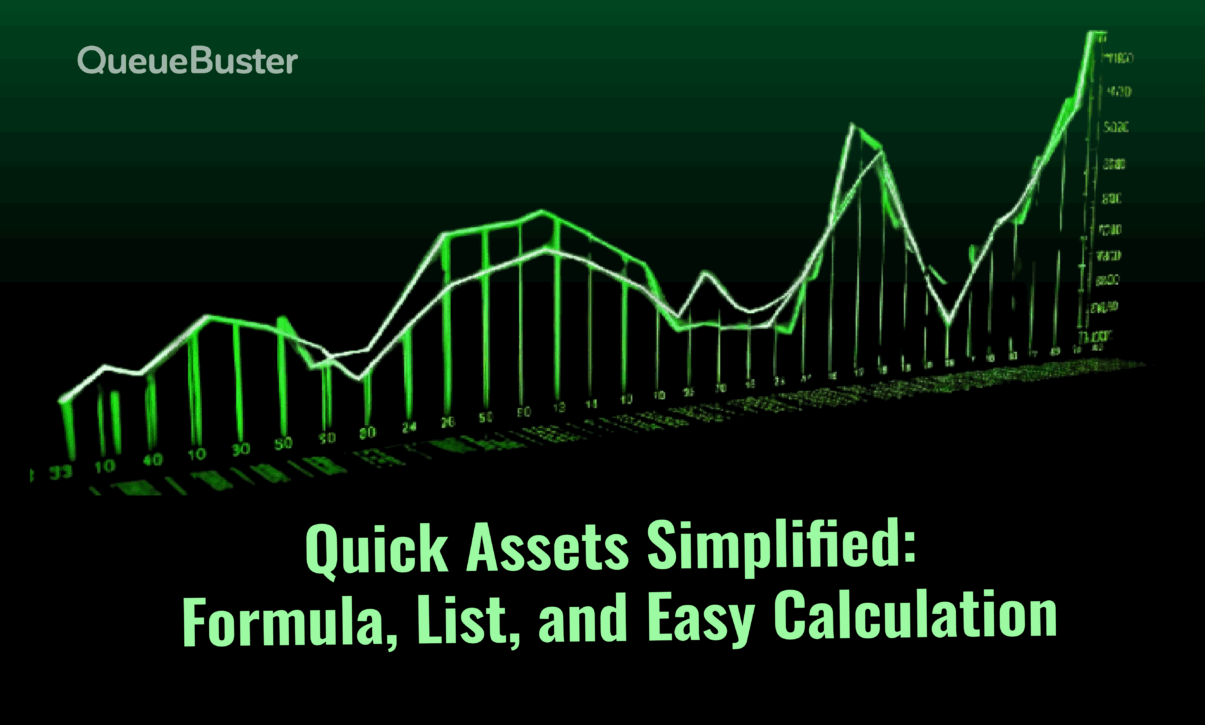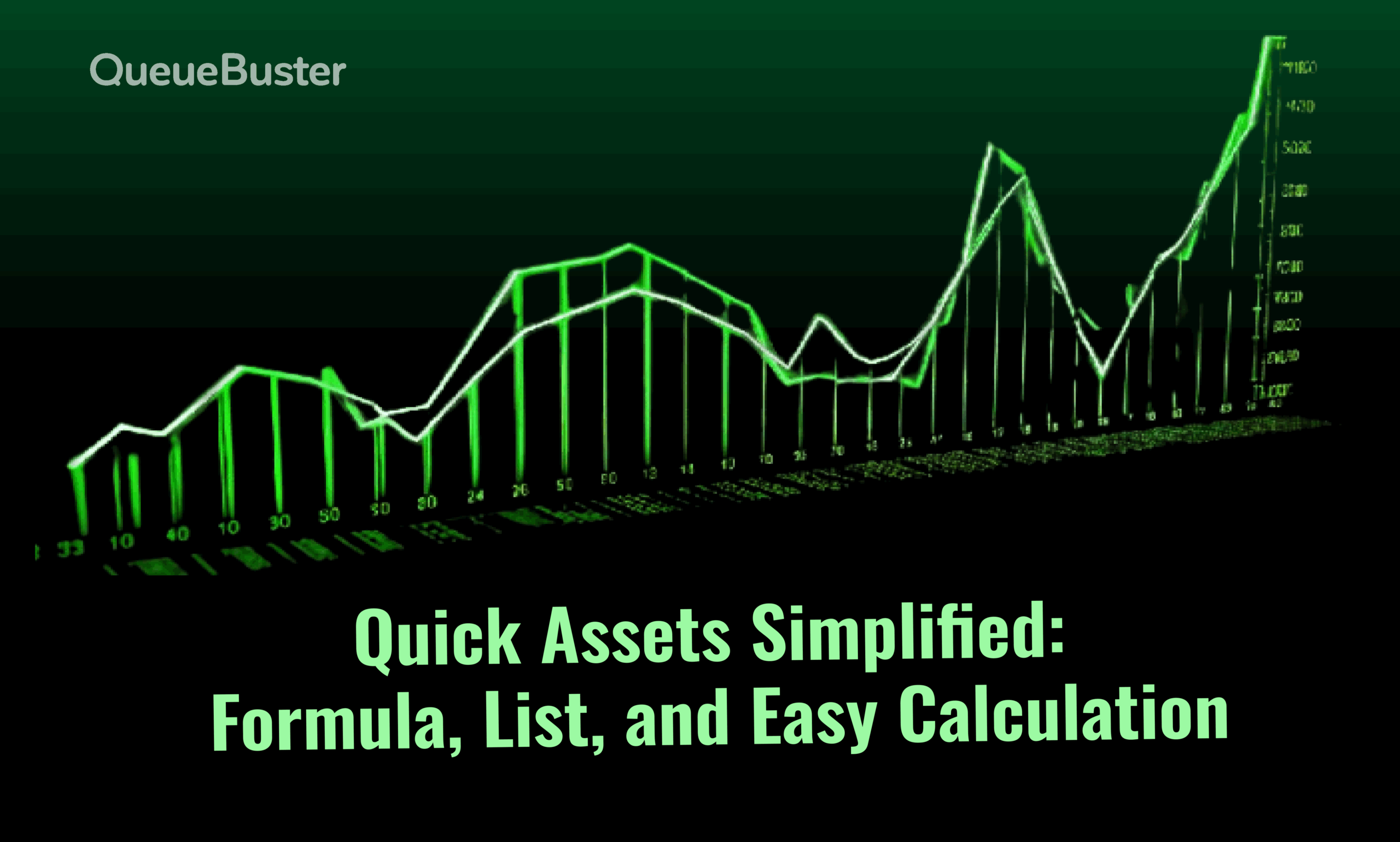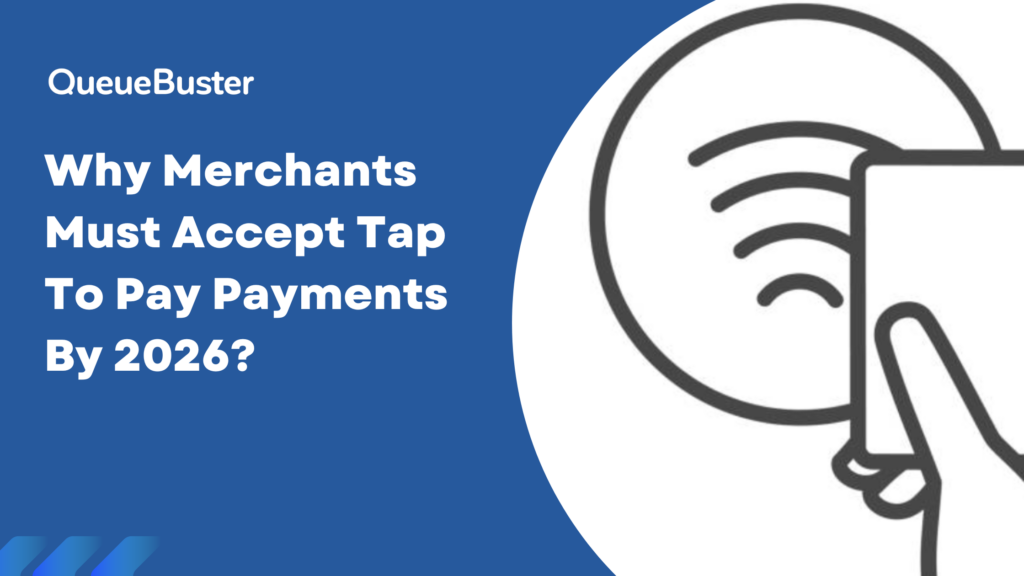
Quick Assets Simplified: Formula, List, and Easy Calculation
Quick Assets Simplified: Formula, List, and Easy Calculation

By Charu Gupta Published: August 12th, 2025
Introduction
In the world of business and finance, understanding your company’s financial health is very important. One of the simplest ways to measure it is by looking at Quick Assets. They tell you how easily your business can convert its resources into cash to pay short-term obligations.
In this blog, we’ll simplify what quick assets are, the formula to calculate them, the list of items included, and how you can easily calculate them for your business.
What Are Quick Assets?
Quick assets are those current assets of a business that can be quickly converted into cash without losing value. These assets help companies meet their short-term liabilities.
Think of them as your “instant money power” – resources you can quickly use when you need to make urgent payments.
Quick Assets Formula
The formula to calculate quick assets is:
Quick Assets = Current Assets – (Inventory + Prepaid Expenses)
Here’s why:
- Current Assets are everything you own that can be converted into cash within a year.
- Inventory is removed because it may take time to sell.
- Prepaid Expenses (like advance rent or insurance) are also removed because they cannot be converted into cash.
List of Quick Assets
Quick assets typically include:
- Cash and Cash Equivalents (like money in the bank)
- Marketable Securities (like short-term investments)
- Accounts Receivable (money customers owe you, expected soon)
Not included:
- Inventory
- Prepaid Expenses
- Fixed Assets (like land, buildings, equipment)
Easy Calculation Example
Imagine a business with the following details:
- Current Assets: ₹10,00,000
- Inventory: ₹3,00,000
- Prepaid Expenses: ₹50,000
Quick Assets = ₹10,00,000 – (₹3,00,000 + ₹50,000)
Quick Assets = ₹6,50,000
This means the business has ₹6.5 lakh worth of assets that can be quickly converted to cash.
Why Are Quick Assets Important?
- Liquidity Check – They show how ready your business is to handle short-term expenses.
- Financial Health – Banks and investors use them to check your stability.
- Better Planning – Helps you know when to hold cash or when to invest.
For retailers, restaurants, and SMEs, this becomes even more critical because daily operations need quick cash flow.
This is where modern tools like POS Billing Software help. With a good POS system, you can track your sales, receivables, and cash flow in real time – making it easier to calculate your quick assets.
Quick Assets and Business Tools
In today’s digital-first era, many businesses in India are adopting smarter tools to manage their finances. Just like neo banks are simplifying digital banking, POS software is simplifying day-to-day financial tracking for retailers and small businesses.
A POS system not only handles billing but also gives you insights into:
- Daily sales reports
- Customer dues (accounts receivable)
- Real-time cash flow tracking
This makes your quick asset calculation much faster and more accurate.
Final Thoughts
Quick assets are a simple but powerful measure of your company’s financial health. By using the formula and keeping track of the right assets, you can always stay prepared for short-term obligations.
With the rise of neo banks and digital tools, businesses today have access to smarter ways of managing their money. Combine that with efficient POS billing software, and you’ll always know where your liquidity stands.
Understanding and tracking quick assets regularly can give your business the stability it needs in a fast-changing financial world.
Popular Posts

MEWA India 2026: Showcasing QueueBuster POS to the Global Dry Fruits Industry
MEWA India 2026 was not just another industry event for us, it […]

Why Merchants Must Accept Tap to Pay Payments by 2026
The way customers pay has changed rapidly over the last few years […]